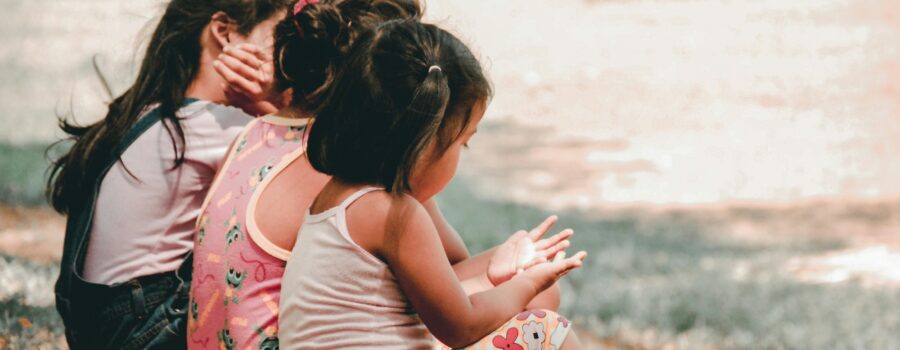The way we grow up plays a role in shaping who we become. But the promising news is that this impact is not fixed. For instance, that’s not to say that someone with a neglectful childhood can never succeed at the level of someone who felt safe and nurtured in their youth. But what happens during their early years affects a child’s development in a number of ways, ultimately playing a role in everything from their mental health and self-esteem to their academic performance.
Today, we want to focus on two big determinants in a child’s development: their environment and their relationships.
Environment and a child’s development
In past blogs, we’ve explored how environment plays a role in adults’ mental health. The same is true for children, particularly when it comes to their home environment.
A safe, healthy home is linked to:
- Better language skills
- More readiness for school
- Adaptive emotional regulation skills
- Improved coping mechanisms in adulthood
- Stronger tolerance for discomfort
- Fewer behavioral problems
- Lower likelihood of teen pregnancy
- Improved odds of graduating high school
- Higher income during adulthood
Recent findings at Cornell University point to a few specific ways you can improve the environment for a child’s development. Try to minimize the child’s exposure to chronic loud noise and overcrowded spaces. If you’re limited in your opportunity to cultivate a home environment that exemplifies this, try providing your child with ample time in quiet, open environments, like some time in a large park or at a local library.
For more tips to create the right environment to support a child’s development, you can dive into these suggestions from the Child Care Technical Assistance Center, a branch of the U.S. Department of Health & Human Services, and the Children’s Medical Center.
Relationships and a child’s development
For a child’s brain to develop, they need to interact with not just their environment, but also people. In fact, some experts even call this an environment of relationships. Engaging with others allows their brain to forge connections.
According to the National Scientific Council on the Developing Child, “Young children experience their world as an environment of relationships, and these relationships affect virtually all aspects of their development — intellectual, social, emotional, physical, behavioral, and moral.”
Relationships that are responsive to the child’s needs and interests go a long way to support their healthy development. That could be a relationship with a parent, grandparent, teacher, or other caregiver. The more relationships supporting the child, the better.
To play the best role in a child’s development, the adult in the relationship should strive to engage deeply and create experiences that are tailored for the child. That could mean protecting them from something scary or doing an activity that aligns with their preferences and stimulates their curiosity.
Understanding children’s communication
It’s valuable to understand that anything we do — especially as children — is an attempt to have a need met. We have a set of feelings we express when needs are being met, and a set when they aren’t. Trying to understand your child’s feelings and needs, and providing them with access to ample healthy adults who can meet these needs in different ways, helps to promote healthy development.
Second to this, fostering this understanding can allow us to deepen our awareness of children and their attempts to communicate things to us. This is particularly important because their communication will generally be less verbal or sophisticated than adults’.
Paired together, environment and relationships play critical roles in a child’s development. If you’re a parent and you want guidance here, our therapists can help.
Or if you’re now a teen or adult and you didn’t get a healthy environment or supportive relationships, you may be ready to explore how that affected you. Our therapists are here to guide you in developing tools to overcome any difficulties you face because of your childhood.
To talk with one of our therapists, contact us at the Ventura Counseling & Wellness Center in Ventura or the West Valley Counseling Center in Tarzana.





